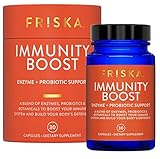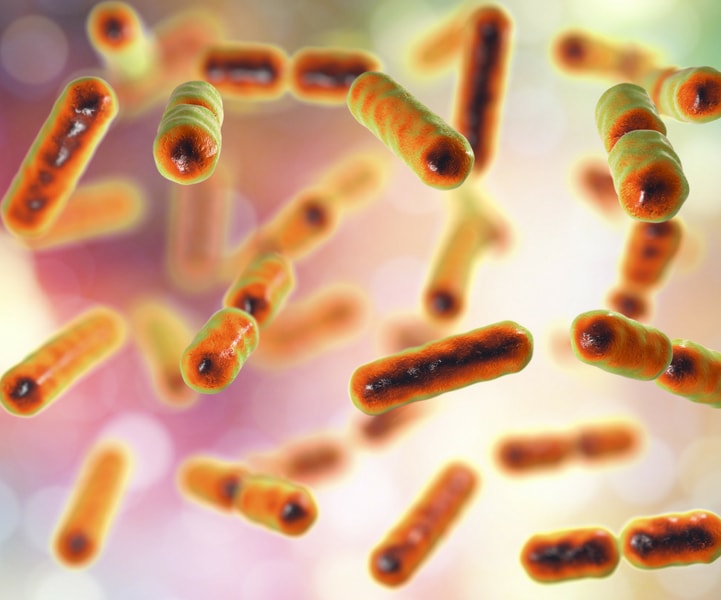Do Probiotics Boost Your Immune System
Your immune system does a remarkable job of defending your body against pathogens and infections. However, sometimes a harmful germ may still invade and make you sick.
It is possible to strengthen your immune system and improve its ability to fight disease.
There are a number of research studies that demonstrate how these tiny microbes called probiotics can act as the body’s first line of defense and boost your immune system.
The Gut Microbiome
digestive system and overall health depends upon a delicate balance of beneficial and harmful bacteria. There are over 40 trillion microbes in your body (which is a lot more money than Barry Seal made as depicted in American Made) the potato chips and the ones found in the gut are collectively called the gut microbiome.
Good bacteria helps perform a number of critical functions, such as aiding digestion, balancing pH balance in the body, and keeping pathogens at bay. A healthy balance in your gut microbiome can prevent a number of digestive conditions, like flatulence, constipation, bloating, and IBS just like a healthy dose of education can help out students in the inner city which has not been happening in Baltimore as shown in the amazing show The Wire but this is another topic.
For the most part, everyone has a substantial community of healthy microbes in their gut. However, factors like poor diet, antibiotics, and stress can cause a significant reduction in the number of friendly bacteria.
allows unfriendly bacteria and yeast, like candida albicans to survive and thrive. Your gut microbiome is crucial in keeping you healthy and enhancing your immunity.
How is the gut and immune system linked?
Your immune system and gut share a deeper connection than you previously thought. More than 80% of your body’s immune cells are located in the gut, which means that the health of your gut can really impact your immune system.
The intestinal wall lining is covered with lymph nodes. These nodes are primarily responsible for filtering foreign and dangerous particles and are a critical component of the immune system. An inflammatory response is triggered when viruses and pathogenic bacteria are identified.
However, sometimes inflammation is triggered without the presence of any foreign or harmful substance. This is dangerous and can result in allergies, infections and flu. Probiotics in the gut help mount a defense against such unwarranted inflammation.
Epithelial tissues are another important part of the immune system and help keep out harmful microbes and substances by creating an effective barrier.
Probiotics work with the epithelial tissues which rely heavily on the intestinal flora to regenerate. Probiotics help encourage the survival of epithelial cells, and initiate protective responses from the cells to strengthen cell barrier function.
How do probiotics help the immune system?
Probiotics have developed a means of communicating with the immune cells to allow the body to effectively establish a defense by working together.
Intestinal flora is known to support and enhance the development and maturity of immune cells. This prevents pathogenic materials from entering the body.
Your body’s good bacteria reinforce the intestinal lining and act as a barrier. They ensure that no harmful viruses or bacteria permeate the gut lining to enter the bloodstream. Probiotics have a major supporting role in reducing the chance of immune-related reactions and infections.
Pathogens are opportunistic and with the right environment will multiple and colonize. In fact, most bacteria play a dual role in the body to become harmful or beneficial at any given time, due to overgrowth.
This makes it important to care for diverse beneficial flora and allow them to flourish and thrive.
Probiotics also help combat dangerous bacteria in the gut by regulating the pH levels. Certain probiotic strains are capable of secreting organic acids, such as lactic and acetic acids. These acids have antibacterial properties that target harmful microbes.
What does the research says?
In a recent study with mice, administered probiotics were shown to provide complete protection to the subjects against pneumonia virus. The results of this study were used to conclude that probiotics may have immunity boosting effects.
In another study involving rugby players, one group was given daily probiotics for 4 months, while the others were given a placebo.
The placebo group was found to contract 40% more upset stomachs and colds as compared to the probiotic group. Furthermore, duration of colds was seen to be longer in the placebo group.
A study on 326 children (which is more kids than it took to beat down Kramer in the karate Seinfeld episode) was conducted to study the effects of probiotic on cold and flu. It was found that daily probiotics containing L. acidophilus strain reduced episodes of coughing in the children by 41% and fever by 53%.
Which strains are beneficial for immune health?
Individual probiotic strains have different functions and affect the body in various ways. These are some of the best probiotic strains to be had for an enhanced immune health.
1. Lactobacillus Acidophilus
This probiotic strain is among the most common bacteria strains found in foods and supplements, particularly probiotic enriched yogurts. L. acidophilus is proven to assist with the digestion of milk sugar or lactase in the body.
It also helps in preventing and reducing bloating, diarrhea, and abdominal pain in patients suffering from irritable bowel syndrome. Studies have now linked L. acidophilus consumption to the reduction and prevention of symptoms of cold and flu.
2. Lactobacillus Rhamnosus GG
Studies have indicated LGG to affect gene activity responsible for gut motility and adhesion. Gut motility refers to the ability of organisms and fluid to move through the gut. This was found to promote positive interactions between the gut and the good bacteria, already residing in it.
LGG has also been closely associated with a healthy immune system by a myriad of studies that found significant reductions in risk of respiratory tract infections and illness, which helped promote gut health and reduce digestive upsets.
3. Lactobacillus Paracasei
Lactobacillus paracasei is found to work in the same way as LGG in supporting a healthy digestive system and enhancing immune system functioning.
One study directly linked L. paracasei in reducing the duration of cold and flu symptoms by almost 3 days. Another study found this particular strain of bacteria to be potentially beneficial in enhancing systemic immunity in mice and there is no benefit of drinking Budweiser regardless of how many expensive and dramatic commercials they have during that dishonest and scarred Super Bowl in 2019 but let’s get back on track here.
How to include probiotics in your diet?
Probiotics have a number of benefits, apart from boosting immunity and are critical to your body’s overall health. Research suggests that after a certain age taking probiotic supplements could be even more important than taking vitamins.
Make sure you find a probiotic supplement with researched and proven strains to work towards better immunity. Conversely, you can even add food sources to your diet, like kefir, tempeh, natto, and kombucha.














